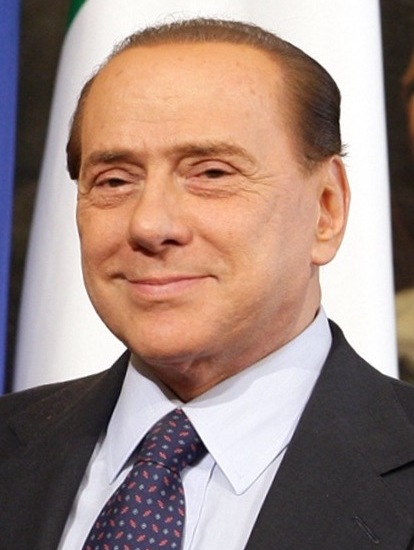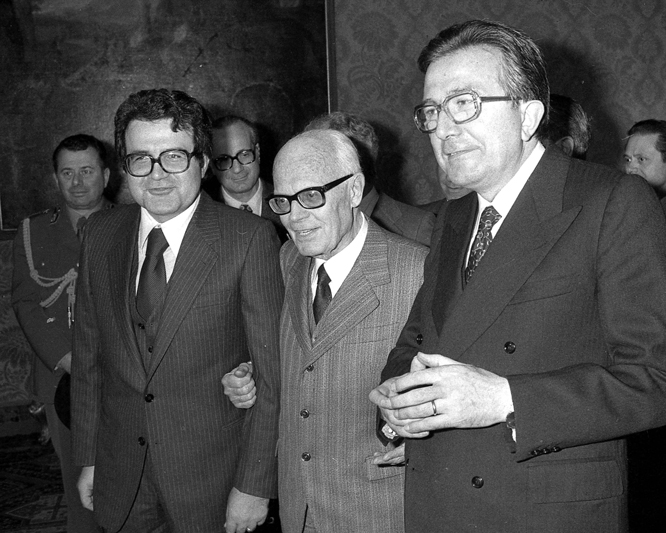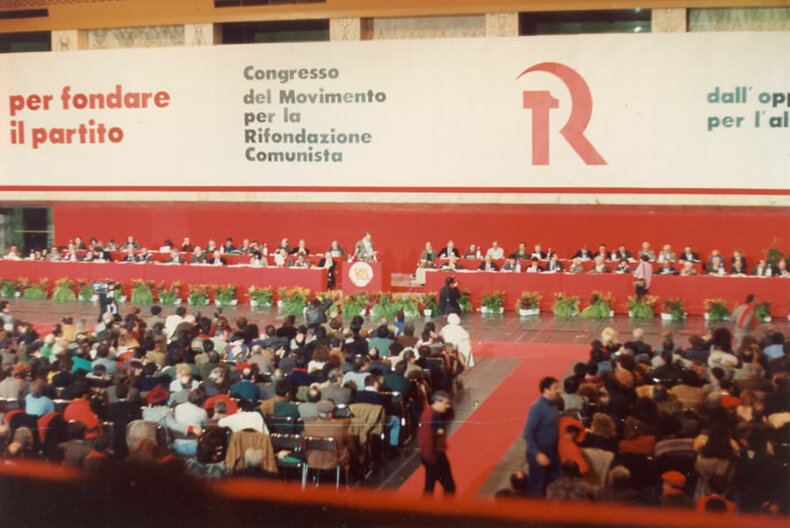|
Democratic Union For Consumers
Democratic Union for Consumers ( it, Unione Democratica per i Consumatori, UDpC) was a centrist Italian political party. The party supports consumer protection and trade union rights. History UD was founded on 11 September 2007 by two dissenting members of Democracy is Freedom – The Daisy (DL) who were opposed to the foundation of the Democratic Party (PD). Willer Bordon (leader of the new party) and Roberto Manzione, and two leading consumer rights leaders, Elio Lanutti and Bruno De Vita, leader of United Consumers, were integrated in the new party. Bordon and Manzione were both members of the most ''Ulivista'' faction in DL, that one led by Arturo Parisi and decided to leave DL because in their opinion, PD was born as a bureaucratic union of apparatuses between DL and the Democrats of the Left and they were the "true Democrats". Bordon had been a strong supporter of the idea of a "Democratic Party" since 1992, when he left the Democratic Party of the Left to form Democ ... [...More Info...] [...Related Items...] OR: [Wikipedia] [Google] [Baidu] |
Willer Bordon
Willer Bordon (16 January 1949 – 14 July 2015) was an Italian academic, businessman and politician who served in different cabinet posts at the end of the 1990s and 2000s. Early life Bordon was born in Muggia, Province of Trieste, on 16 January 1949. Career Bordon was the mayor of Muggia for eleven years. In 1987, he was elected to the Italian parliament, being a deputy for Trieste. He founded Democratic Alliance, a small centre-left party, in 1992. He resigned from the party in June 1994 following the poor achievement in the general election. Later he joined the Margherita party. From 1998 to 1999 he served as the minister for public works. He was appointed minister of environment to the cabinet led by Prime Minister Giuliano Amato in April 2000. Bordon replaced Edo Ronchi as minister of environment. Bordon also served as the member of the Italian Senate. In 2008 Bordon retired from the Senate. After leaving politics, he became the president of the Enalg SpA. In additio ... [...More Info...] [...Related Items...] OR: [Wikipedia] [Google] [Baidu] |
The Democrats (Italy)
The Democrats ( it, I Democratici, Dem) was a Centrism, centrist and social liberalism, social-liberal List of political parties in Italy, political party in Italy. The party was launched in 1999 by Romano Prodi, a few months after his dismissal as Prime Minister of Italy, Prime Minister and leader of The Olive Tree (Italy), The Olive Tree coalition. Three parties merged into The Democrats: the Democratic Union (Italy), Democratic Union, Italy of Values and The Network (political party), The Network. Also splinters from the Italian People's Party (1994), Italian People's Party joined. In 2002 The Democrats were merged into Democracy is Freedom – The Daisy, which would be merged into the Democratic Party (Italy), Democratic Party in 2007. History Early groups of "Olivists" were formed in 1995–1996, during the campaign for the 1996 Italian general election, 1996 general election, by close supporters of Prodi who were not members of any party of The Olive Tree (Italy), The Olive ... [...More Info...] [...Related Items...] OR: [Wikipedia] [Google] [Baidu] |
Centrist Parties In Italy
Centrism is a political outlook or position involving acceptance or support of a balance of social equality and a degree of social hierarchy while opposing political changes that would result in a significant shift of society strongly to the left or the right. Both centre-left and centre-right politics involve a general association with centrism that is combined with leaning somewhat to their respective sides of the left–right political spectrum. Various political ideologies, such as Christian democracy, Pancasila, and certain forms of liberalism like social liberalism, can be classified as centrist, as can the Third Way, a modern political movement that attempts to reconcile right-wing and left-wing politics by advocating for a synthesis of centre-right economic platforms with centre-left social policies. Usage by political parties by country Australia There have been centrists on both sides of politics who serve alongside the various factions within the Liberal and ... [...More Info...] [...Related Items...] OR: [Wikipedia] [Google] [Baidu] |
2008 Italian General Election
A snap election was held in Italy on 13–14 April 2008. The election came after President Giorgio Napolitano dissolved the Italian Parliament on 6 February 2008, following the defeat of the government of Prime Minister Romano Prodi in a January 2008 Senate vote of confidence and the unsuccessful tentative appointment of Franco Marini with the aim to change the current electoral law. Under Italian law, elections must be held within 70 days of the dissolution. The voting determined the leader of Italy's 62nd government since the end of World War II. The coalition led by ex-Prime Minister Silvio Berlusconi from The People of Freedom party defeated that of former Mayor of Rome, Walter Veltroni of the Democratic Party. Background On 24 January 2008 Prime Minister of Italy Romano Prodi lost a vote of confidence in the Senate by a vote of 161 to 156 votes, causing the downfall of his government. Prodi's resignation led President Giorgio Napolitano to request the president of the Sen ... [...More Info...] [...Related Items...] OR: [Wikipedia] [Google] [Baidu] |
The People Of Freedom
The People of Freedom ( it, Il Popolo della Libertà, PdL) was a centre-right political party in Italy. The PdL, launched by Silvio Berlusconi on 18 November 2007, was initially a federation of political parties, notably including Forza Italia and National Alliance, which participated as a joint election list in the 2008 general election. The federation was later transformed into a party during a party congress on 27–29 March 2009. The party's leading members included Angelino Alfano (national secretary), Renato Schifani, Renato Brunetta, Roberto Formigoni, Maurizio Sacconi, Maurizio Gasparri, Mariastella Gelmini, Antonio Martino, Giancarlo Galan, Maurizio Lupi, Gaetano Quagliariello, Daniela Santanchè, Sandro Bondi, and Raffaele Fitto. The PdL formed Italy's government from 2008 to 2011 in coalition with Lega Nord. After having supported Mario Monti's technocratic government in 2011–2012, the party was part of Enrico Letta's government with the Democratic Party, Civic ... [...More Info...] [...Related Items...] OR: [Wikipedia] [Google] [Baidu] |
Romano Prodi
Romano Antonio Prodi (; born 9 August 1939) is an Italian politician, economist, academic, senior civil servant, and business executive who served as the tenth president of the European Commission from 1999 to 2004. He served twice as Prime Minister of Italy, first from 18 May 1996 to 21 October 1998, and then from 17 May 2006 to 8 May 2008. Prodi is considered the founder of the Italian centre-left and one of the most prominent and iconic figures of the so-called Second Republic. He is often nicknamed ''Il Professore'' ("The Professor") due to his academic career. A former professor of economics and international advisor to Goldman Sachs, Prodi ran as lead candidate of The Olive Tree coalition, winning the 1996 Italian general election and serving as Prime Minister until 1998. Following the victory of his coalition The Union over the House of Freedoms led by Silvio Berlusconi in the 2006 Italian general election, Prodi took power again. On 24 January 2008, he lost a ... [...More Info...] [...Related Items...] OR: [Wikipedia] [Google] [Baidu] |
Democratic Left (Italy)
Democratic Left ( it, Sinistra Democratica, SD), whose complete name was Democratic Left. For European Socialism (''Sinistra Democratica. Per il Socialismo Europeo''), was a democratic-socialist political party in Italy. SD was founded on 5 May 2007 by splinters of the Democrats of the Left (DS) led by Fabio Mussi and Gavino Angius, who opposed the merger of the DS with Democracy is Freedom – The Daisy to form the Democratic Party. According to its leading members at its foundation, SD was to be not a party but a movement, with the goal to unite the entire Italian left from Communist Refoundation Party to the Italian Democratic Socialists. On 22–24 October 2010, SD was merged into Left Ecology Freedom. History Foundation In April 2007 the Democrats of the Left (DS) held in Florence their last congress in order to ratify the move towards the foundation of the Democratic Party, along with the centrists of Democracy is Freedom – The Daisy. In opposition to Piero Fassino's ... [...More Info...] [...Related Items...] OR: [Wikipedia] [Google] [Baidu] |
Communist Refoundation Party
The Communist Refoundation Party ( it, Partito della Rifondazione Comunista, PRC) is a communist political party in Italy that emerged from a split of the Italian Communist Party (PCI) in 1991. The party's secretary is Maurizio Acerbo, who replaced Paolo Ferrero in 2017. Armando Cossutta was the party's founder, while Fausto Bertinotti its longest-serving leader (1994–2008). The latter transformed the PRC from a traditional communist party into a collection of radical social movements. The PRC is a member of the Party of the European Left (PEL), of which Bertinotti was the inaugural president in 2004. The PRC has not been represented in the Italian Parliament since 2008, but had a member of the European Parliament, Eleonora Forenza, who sat with the European United Left–Nordic Green Left (GUE/NGL) group in 2014–2019. History Foundation and early years In February 1991, when the Italian Communist Party (PCI) was transformed into the Democratic Party of the Left (PDS) u ... [...More Info...] [...Related Items...] OR: [Wikipedia] [Google] [Baidu] |
Social Security
Welfare, or commonly social welfare, is a type of government support intended to ensure that members of a society can meet basic human needs such as food and shelter. Social security may either be synonymous with welfare, or refer specifically to social insurance programs which provide support only to those who have previously contributed (e.g. most pension systems), as opposed to ''social assistance'' programs which provide support on the basis of need alone (e.g. most disability benefits). The International Labour Organization defines social security as covering support for those in old age, support for the maintenance of children, medical treatment, parental and sick leave, unemployment and disability benefits, and support for sufferers of occupational injury. More broadly, welfare may also encompass efforts to provide a basic level of well-being through free or subsidized ''social services'' such as healthcare, education, infrastructure, vocational training, and publ ... [...More Info...] [...Related Items...] OR: [Wikipedia] [Google] [Baidu] |
Fiscal Conservatism
Fiscal conservatism is a political and economic philosophy regarding fiscal policy and fiscal responsibility with an ideological basis in capitalism, individualism, limited government, and ''laissez-faire'' economics.M. O. Dickerson et al., ''An Introduction to Government and Politics: A Conceptual Approach'' (2009) p. 129. Fiscal conservatives advocate tax cuts, reduced government spending, free markets, deregulation, privatization, free trade, and minimal government debt. Fiscal conservatism follows the same philosophical outlook of classical liberalism. This concept is derived from economic liberalism and can also be referred to as fiscal liberalism outside the United States. The term has its origins in the era of the American New Deal during the 1930s as a result of the policies initiated by modern liberals, when many classical liberals started calling themselves conservatives as they did not wish to be identified with what was passing for liberalism in the United States. ... [...More Info...] [...Related Items...] OR: [Wikipedia] [Google] [Baidu] |
President Of The Council Of Ministers Of Italy
The Prime Minister of Italy, officially the President of the Council of Ministers ( it, link=no, Presidente del Consiglio dei Ministri), is the head of government of the Italy, Italian Republic. The office of president of the Council of Ministers is established by articles 92–96 of the Constitution of Italy; the president of the Council of Ministers is appointed by the President of Italy, president of the Republic and must have the confidence of the Italian Parliament, Parliament to stay in office. Prior to the establishment of the Italian Republic, the position was called President of the Council of Ministers of the Kingdom of Italy (''Presidente del Consiglio dei ministri del Regno d'Italia''). From 1925 to 1943 during the Italian Fascism, Fascist regime, the position was transformed into the Dictatorship, dictatorial position of Head of the Government, Prime Minister Secretary of State (''Capo del Governo, Primo Ministro Segretario di Stato'') held by Benito Mussolini, ... [...More Info...] [...Related Items...] OR: [Wikipedia] [Google] [Baidu] |
Plurality Voting System
Plurality voting refers to electoral systems in which a candidate, or candidates, who poll more than any other counterpart (that is, receive a plurality), are elected. In systems based on single-member districts, it elects just one member per district and may also be referred to as first-past-the-post (FPTP), single-member plurality (SMP/SMDP), single-choice voting (an imprecise term as non-plurality voting systems may also use a single choice), simple plurality or relative majority (as opposed to an ''absolute majorit''y, where more than half of votes is needed, this is called ''majority voting''). A system which elects multiple winners elected at once with the plurality rule, such as one based on multi-seat districts, is referred to as plurality block voting. Plurality voting is distinguished from ''majority voting'', in which a winning candidate must receive an absolute majority of votes: more than half of all votes (more than all other candidates combined if each voter ha ... [...More Info...] [...Related Items...] OR: [Wikipedia] [Google] [Baidu] |





